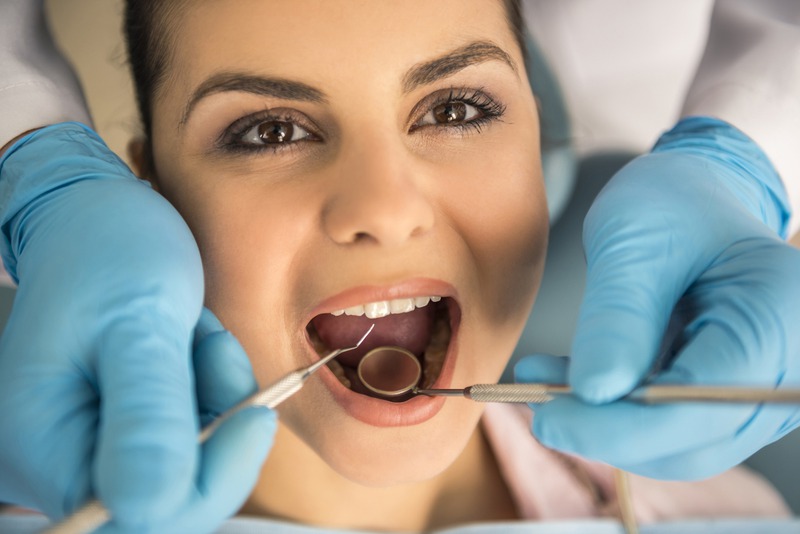When it comes to maintaining healthy gums, there’s more to it than just brushing and flossing at home. Regular dental cleanings play a crucial role in your oral hygiene routine. But how often should you be getting them? In the hustle and bustle of daily life, it’s easy to lose track of our dental appointments, but ensuring that your gums stay in prime condition is key to your overall well-being. Let’s look into the ideal frequency of dental cleanings for healthy gums and why they are so important.
Dental Cleanings
Dental cleanings aren’t just about polishing your pearly whites; they are essential for maintaining gum health. During a cleaning, dental professionals remove plaque and tartar that can’t be tackled by brushing alone. This process helps prevent gum disease, which can lead to more serious issues if left untreated.
Why Dental Cleanings are Key for Your Gums
-
Plaque Removal: Plaque is a sticky film of bacteria that can cause gum inflammation.
-
Tartar Control: If plaque builds up, it hardens into tartar, which can only be removed by a professional.
-
Gum Disease Prevention: Regular cleanings help prevent gingivitis, the earliest stage of gum disease.
-
Spotting Issues Early: Your dentist can spot and address potential issues before they escalate.
How Often Should You Visit the Dentist?
The standard recommendation is that you should visit the dentist for a cleaning every six months. However, this is not a one-size-fits-all schedule. The frequency can vary based on your oral health status, habits, and even genetic predisposition to gum disease.
When to Consider More Frequent Cleanings
If you’re dealing with certain conditions or situations, you should step up your dental visits. These include:
-
Having a history of gum disease or gingivitis.
-
Being a smoker or user of tobacco products.
-
Having diabetes or other conditions that impact gum health.
-
Experiencing frequent cavities or plaque buildup.
In these cases, your dentist might recommend cleanings every three or four months. Always follow your dentist’s personalized advice for your specific needs.
For Those With Healthy Gums
If you have a solid track record of good oral hygiene and don’t fall into the high-risk categories, twice-yearly cleanings are generally sufficient. This biannual visit ensures gum health is monitored and maintained, preventing unseen issues from developing.
What Happens During a Dental Cleaning?
Understanding what goes on during a dental cleaning can make the experience less daunting and reveal why they are so essential.
-
Examination: The cleaning process starts with a thorough examination of your teeth and gums. Any signs of inflammation, bleeding, or gum recession are noted.
-
Scaling: Your dental hygienist will use specialized tools to remove tartar and plaque from your teeth, both above and below the gumline.
-
Polishing: After scaling, your teeth will be polished to remove any surface stains, leaving your teeth feel fresh and clean.
-
Flossing: Professional flossing gets between teeth to remove any lingering plaque or debris and ensure your gums are as clean as possible.
-
Fluoride Treatment: If necessary, a fluoride treatment may be provided to help strengthen tooth enamel and fight off cavities.
A key component of these appointments is also the educational aspect, where dental professionals provide personalized advice on maintaining your dental health at home.
Periodontal Care
When gum disease becomes more advanced, periodontal treatment becomes necessary. This is where the periodontics in Corpus Christi, TX, come into play. Specialists in periodontics focus on the health of the structures that support your teeth, including your gums. In some cases, deep cleanings, known as scaling and root planing, are performed to treat gum disease.
Dealing with Decay or Damage
If decay reaches the tooth’s pulp, it can affect the surrounding gum tissue. This is where root canal therapy Corpus Christi comes into the picture. A root canal procedure can save a severely damaged or infected tooth and prevent further gum issues.
Additional Treatments for Gum Health
Maintaining healthy gums is pivotal to overall oral health. Beyond regular cleanings, there are extra measures that can bolster gum health:
-
Scaling and Root Planing: A deep-cleaning procedure that removes tartar from above and below the gum line and smoothens the root surfaces.
-
Antimicrobial Mouthrinse: Use a prescription mouth rinse to help control bacterial infection.
-
Oral Probiotics: Supplements that can alter the bacterial balance in the mouth, promoting a healthy environment.
-
Gum Graft Surgery: To cover exposed roots or develop gum tissue where absent due to excessive gingival recession.
-
Regenerative Procedures: Techniques that regenerate lost bone and tissue supporting the teeth.
-
Laser Treatment: Lasers can be used to reshape gums and remove bacteria during root canal procedures.
-
Antibiotic Therapy: Placement of topical or oral antibiotics to reduce bacterial infection.
Consult with a dental professional to determine the most appropriate treatment to support your gum health.
Maintaining Gum Health Between Cleanings
To keep your gums in prime condition, here are some steps you can take at home:
-
Brush twice a day with fluoride toothpaste.
-
Floss daily to remove plaque from between teeth.
-
Use an antiseptic mouthwash to help control plaque bacteria.
-
Quit smoking, as it can hinder the healing process of your gums.
-
Eat a balanced diet to provide the nutrients necessary for good oral health.
Remember, home care is only part of the equation, and regular professional cleanings are necessary to maintain optimal gum health.
Preserving Your Smile and Gum Health
When teeth are missing or need to be restored, dental crowns and bridges can help maintain the proper spacing of your teeth and prevent the shifting that can affect gum health. These restorative treatments help keep your bite aligned and your gums in good shape.
Final Thoughts
Taking care of your gums is a crucial aspect of your overall health. With the right dental care routine, including regular check-ups and cleanings, you can ensure that your gums stay healthy. Your specific needs may vary, so always consult with your dentist to create a care plan that’s tailor-made for you. By combining good at-home practices with professional dental services, you’ll be smiling bright with confidence and good health.



